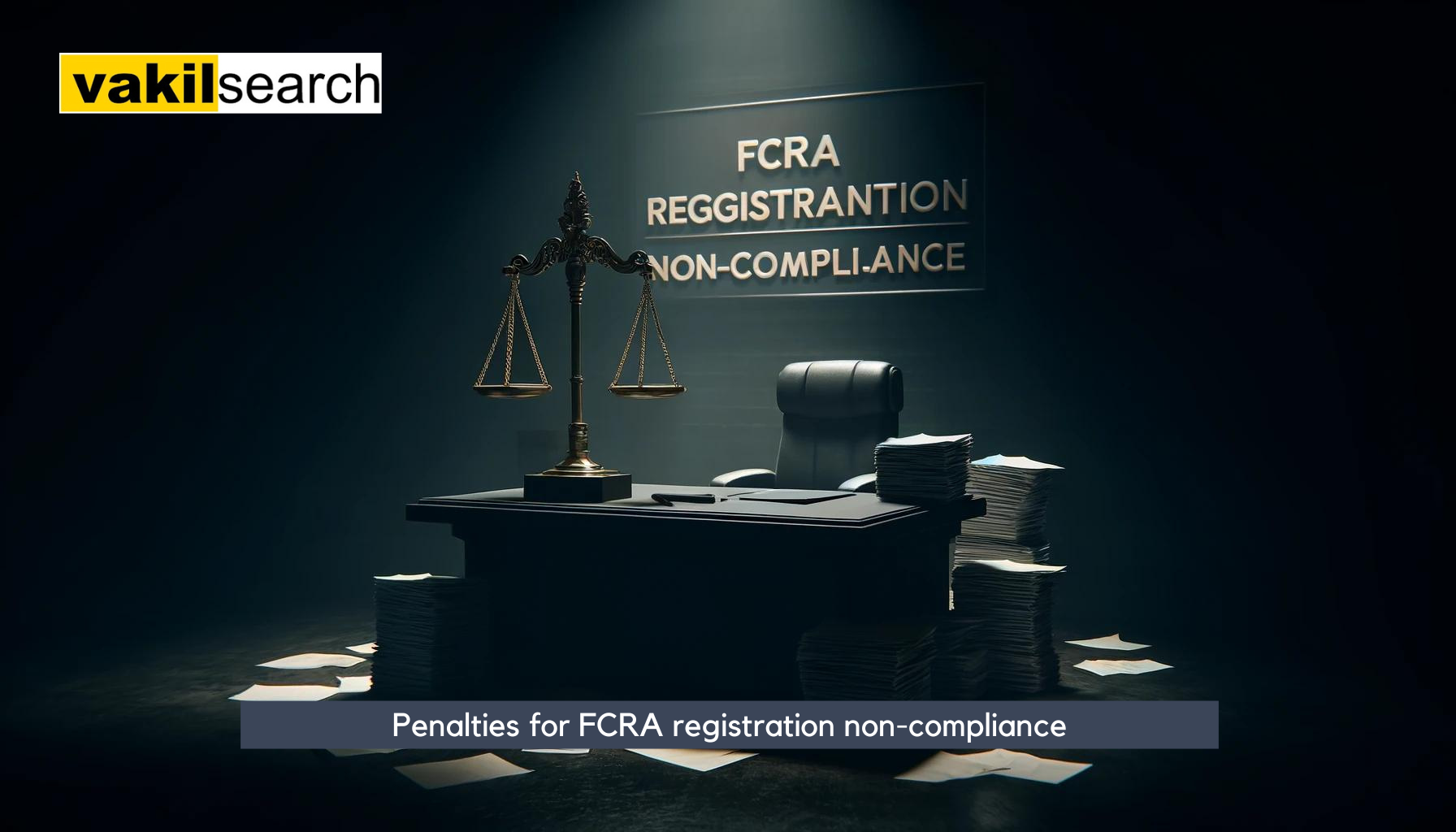Introduction:
The Foreign Contribution (Regulation) Act, 2010 (FCRA) stands as a critical legal framework governing the receipt and utilization of foreign contributions in India. Enacted to regulate the acceptance and utilization of foreign contributions or donations by individuals, associations, and companies, FCRA registration is mandatory for entities seeking to receive foreign funds for specified purposes such as cultural, economic, educational, religious, or social programs. Compliance with FCRA regulations is crucial to ensure transparency, accountability, and lawful utilization of foreign funds, failure of which can result in penalties and legal repercussions. Here, we delve into the intricacies of FCRA registration, its significance, procedures, and the penalties for non-compliance.
Understanding FCRA Registration:
FCRA registration serves as a legal mandate for organizations or individuals intending to receive foreign contributions for various purposes. Whether it’s for social welfare programs, educational initiatives, or religious activities, FCRA registration ensures transparency and accountability in the receipt and utilization of foreign funds. The registration process involves stringent scrutiny by the Ministry of Home Affairs (MHA) to ascertain the legitimacy and credibility of the recipient entity.
Entities Eligible for FCRA Registration:
The FCRA extends its ambit to a wide range of entities, including:
- Non-Governmental Organizations (NGOs)
- Charitable Trusts
- Societies
- Section 8 Companies (Non-profit organizations)
- Religious Organizations
- Educational Institutions
These entities, engaged in activities falling under the specified purposes outlined in the FCRA, are required to obtain FCRA registration to legally receive foreign contributions.
Significance of FCRA Registration:
FCRA registration offers several benefits and privileges to the recipient entities:
- Legitimacy: FCRA registration establishes the legitimacy of the entity in receiving foreign contributions, enhancing its credibility and trustworthiness.
- Tax Exemptions: FCRA-registered entities are eligible for tax exemptions on foreign contributions received, promoting financial viability and sustainability.
- Access to Funds: FCRA registration opens doors to a diverse range of funding opportunities from international donors and organizations, facilitating the implementation of developmental projects and initiatives.
- Accountability and Transparency: FCRA regulations mandate stringent reporting and compliance mechanisms, ensuring transparency and accountability in the utilization of foreign funds.
- Enhanced Credibility: FCRA registration enhances the credibility and reputation of the recipient entity, fostering trust among donors, stakeholders, and beneficiaries.
Procedure for FCRA Registration:
The process of FCRA registration entails several steps, including:
- Eligibility Verification: The entity must ascertain its eligibility for FCRA registration based on its nature, objectives, and activities falling under the specified purposes outlined in the FCRA.
- Application Submission: The entity submits the FCRA registration application online through the designated portal, providing requisite details, documents, and information as per the prescribed format.
- Scrutiny and Verification: The Ministry of Home Affairs (MHA) scrutinizes the application, verifying the authenticity, credibility, and compliance of the entity with FCRA regulations.
- Field Visit and Inspection: MHA may conduct field visits and inspections to assess the physical existence, activities, and compliance status of the applicant entity.
- Approval and Issuance: Upon successful verification and compliance, MHA grants FCRA registration to the entity, issuing a registration certificate with a unique registration number.
Penalties for FCRA Registration Non-Compliance:
Non-compliance with FCRA regulations can lead to severe penalties, sanctions, and legal repercussions for the defaulting entity. The penalties for FCRA registration non-compliance include:
- Fine and Monetary Penalties: Entities found guilty of FCRA registration non-compliance may face monetary penalties imposed by the authorities. The fine amount varies depending on the nature, severity, and duration of the violation.
- Suspension or Cancellation of Registration: MHA reserves the right to suspend or cancel the FCRA registration of entities found violating FCRA regulations. Suspension or cancellation of registration entails the cessation of foreign funding and the loss of privileges and benefits associated with FCRA registration.
- Blacklisting and Debarment: Defaulting entities may be blacklisted and debarred from receiving foreign contributions indefinitely or for a specified period. Blacklisting entails reputational damage, loss of credibility, and exclusion from future funding opportunities.
- Criminal Prosecution: Serious violations of FCRA regulations may warrant criminal prosecution against the defaulting entity, its office bearers, or responsible individuals. Criminal charges may lead to imprisonment, fines, and other legal consequences.
- Seizure of Assets: In cases of egregious FCRA violations or misuse of foreign funds, authorities may initiate proceedings for the seizure and forfeiture of assets belonging to the defaulting entity.
Conclusion:
FCRA registration is not merely a legal obligation but a mechanism to ensure transparency, accountability, and lawful utilization of foreign contributions for specified purposes. Compliance with FCRA regulations is imperative for entities seeking to receive foreign funds, as non-compliance can result in severe penalties, sanctions, and legal repercussions. By adhering to FCRA guidelines, entities can uphold integrity, credibility, and trust in their operations, fostering sustainable development and social impact. Therefore, it is incumbent upon organizations and individuals to understand, comply with, and uphold FCRA regulations to avoid the pitfalls of non-compliance and safeguard their reputation and legality.
